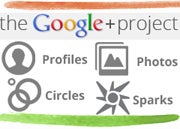A new material has been discovered, which has such a potential to revolutionize the semiconductor world. but also various other industries!
Read out the following article to learn about the 'new silicon'- Graphene
Read out the following article to learn about the 'new silicon'- Graphene
The story begins with two breakthroughs, both revealed in the last 10 days.
Researchers at IBM announced this month they’ve built the first integrated circuit made of something called graphene.

The wafer you’re looking at is as thin as humanly possible – exactly one atom layer thick. And yet it’s powerful enough to…
- Make mobile phones work in places they can’t now
- Make almost any electronic device run faster, with less electricity
- Power devices that can see inside the human body without harmful X-rays.
You can’t do that with the stuff that’s made up integrated circuits for the last 40 years – silicon. Graphene is on its way to becoming “the new silicon.”
Also this month, researchers at Northern Illinois University made a parallel breakthrough, equally important: They hit on a way to manufacture graphene in high volumes.
Instead of previous methods – splitting graphite crystals with tape, or heating silicon carbide to high temperatures – the NIU scientists came up with something so simple your teenager could do it in the garage (although we wouldn’t advise it) – burning magnesium in dry ice.
“Up until now,” says professor Narayan Hosmane, “graphene has been synthesized by various methods utilizing hazardous chemicals and tedious techniques. This new method is simple, green and cost-effective.”
Graphene is derived from graphite – which itself is derived from the humble carbon atom. The two scientists at the University of Manchester who isolated graphene in 2004 won the Nobel Prize for physics in 2010.
“As a material, it is completely new,” declared the Royal Swedish Academy of Sciences upon bestowing the prize. “As a conductor of electricity, it performs as well as copper. As a conductor of heat, it outperforms all other known materials.
“It is almost completely transparent, yet so dense that not even helium, the smallest gas atom, can pass through it.
“It is not only the thinnest material in the world,” adds The New York Times, “but also the strongest: a sheet of it stretched over a coffee cup could support the weight of a truck bearing down on a pencil point.”
So it will have uses other than electronics. Physicist Michio Kaku from City University of New York envisions more lightweight aircraft and stronger plastics, among other innovations.
Here’s the rub: “Good graphite is not that easy to find,” says our natural resource maven Byron King. “Graphite prices have more than doubled in recent years.” No graphite, no graphene.
On top of that, Byron continues, “China controls 80% of the global graphite market – just like China runs 97% of the world supply of rare earths.” And China’s reserves are dwindling.
So not only are we looking at “the new silicon” in terms of potential… we’re also looking at “the next rare earths” in terms of scarcity. And yes, just as with rare earths, the rush is on to find new sources outside China.
Many lie in developing countries run by dictators who’d love nothing more than to nationalize a big graphite find as soon as some company does the hard work of proving it up. But one of the largest is in North America – 8 million tons – controlled by a tiny firm Byron recently uncovered.
It can produce graphite for $400 a ton and sell it for $2,000. That’s $12.8 billion of potential for a company with a market cap of $58 million.
Byron guided his readers to rare earth gains of 93%… 147%… even 178%. If you missed out, don’t feel bad. Let him tell you about the “new silicon” firm with shares still under $1 each… at least for now. It’s all in this presentation.
Addison Wiggin
for The Daily Reckoning
for The Daily Reckoning









